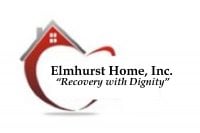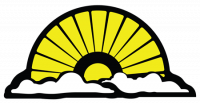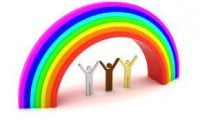
Rainbow Center of Michigan
Drug Rehab Center in Highland Park, Michigan
- Substance Abuse
- Opioid Addiction
- Dual Diagnosis
- Drug Addiction
- Alcoholism
The Rainbow Center of Michigan offers a range of treatment options for addiction, is accredited by the state and accepts private health insurance for affordability, catering to individual needs.
About Rainbow Center of Michigan in Michigan
Rainbow Center of Michigan, located in Highland Park, MI, is a drug treatment facility dedicated to providing care and support for individuals struggling with opiate and other drug dependencies. With a mission to help addicts take full responsibility for their actions, Rainbow Center of Michigan offers a powerful connection that can lead to lasting recovery.
• Specializes in treating alcoholism, dual diagnosis, opioid addiction, substance abuse, and drug addiction
• Offers a range of treatment options, including detoxification, drug rehab, dual-diagnosis programs, and outpatient care
• Accredited by the State License, ensuring they meet necessary standards of quality and safety
Rainbow Center of Michigan is accredited by the State License, demonstrating their commitment to providing high-quality care that meets industry standards. They also accept private health insurance, making their services more accessible to those seeking treatment for addiction.
The center treats a variety of addictions, including alcoholism, opioid addiction, and substance abuse. They offer detoxification, drug rehab, dual-diagnosis programs for co-occurring mental health issues, and outpatient care to support patients throughout their recovery journey.
Genders
Ages
Modality
Additional
Accreditations
State License
Conditions and Issues Treated
A combination of treatments is often needed to treat drug abuse. Some addictions can be treated with counseling and support groups. In other cases, drug abuse can lead to a medical problem and require medical treatment. Treatment for drug addiction typically combines counseling and psychotherapy with medication and behavioral therapies.
A combination of treatments is often needed to treat drug abuse issues effectively. In the case of drug abuse, there is no easy answer or one-size-fits-all cure.
Opioid addiction has become a significant health problem in the United States. In 2015, there were 91 opioid overdose-related deaths per day, with a substantial increase in mortality rate in 2014.
When opioid addiction has reached a point where a person’s life becomes unmanageable, treatment options are available to help them get sober. Treatment that includes medical care with medications and counseling can help a user transition into sobriety.
When someone in struggles with both addiction and mental or emotional illness, this is considered a dual diagnosis. Dual diagnosis treatment can include therapy for these issues to happen simultaneously, which will allow either of them to be treated effectively.
Sometimes people who have suffered from addiction disorder also suffer from co-occurring disorders such as depression, anxiety, bipolar disorder, etc., making them “dual diagnoses.” Dual diagnoses require specialized treatment programs where drug and alcohol addiction are addressed along with psychiatric illnesses. Some rehabilitation facilities provide patients suffering from cooccurrences a program with highly integrated services and a clean environment with few distractions to help them succeed.
Levels of Care Offered
This center offers a variety of custom treatment tailored to individual recovery. Currently available are Detox, Drug Rehab, Dual-Diagnosis, Outpatient, with additional therapies available as listed below.
One of the first things an addict should do when entering treatment is to abstain from using illicit drugs completely. Depending on the length of time that the person has been using, the addict may have to go through alcohol or drug withdrawal. Fortunately, detox doesn’t have to be done alone, and withdrawal symptoms can be managed medically in an inpatient or outpatient setting. While detox may be uncomfortable, it is not life-threatening. Detoxification allows the addict to rid the body of all traces of drugs or alcohol and gives the addict a clean slate for their recovery.
Outpatient treatment is often used for drug addicts in drug rehab. Outpatient treatment consists of counseling and therapy sessions. This form of treatment is also called ‘day-treatment’. The outpatient treatment process begins with the addict’s initial detox period, lasting about ten days.
Outpatient treatment is used for those who are at moderate risk for ‘slipping back’ into the addiction, for those who:
- Are not currently experiencing any side effects from withdrawal and can handle social pressure
- Can handle stressors that might trigger relapse
- Have a stable living environment or have moved out of their previous environment, which was not conducive to being sober
- Have a support system that allows them to go to a facility a few times a week while still keeping their current responsibilities
- Have no legal obligations, being either on parole or probation, that require them to seek treatment at a mandatory facility
- Are not currently experiencing any side effects from withdrawal and can handle social pressure
- Have a stable living environment or have moved out of their previous environment, which was not conducive to being sober
Therapies & Programs
Family therapy is beneficial for people who are in addiction treatment services because it offers addicts the opportunity to work with their family members to better understand what led them to make choices that contributed to their addiction.
This type of therapy helps family members reach a deeper understanding of how they can best support their loved one during recovery. It also helps the addict better understand their own motivations and triggers that led them to turn to substance abuse.
Family therapy can help addicts in the following ways:
- Assists family members in processing difficult feelings so they don’t blame or resent recovering addicts
- Assists family members in understanding how addiction has impacted the addict and everyone who is involved with them
- Allows the addict to take responsibility for their actions, while encouraging improved communication skills
- Helps family members understand how to best support an individual in recovery so addicts don’t relapse again.
Group therapy can help build a stronger support system and give addicts in Highland Park, MI insight into their addiction that they gain through shared conversations. Group therapy occurs in a controlled group environment, exclusive of one on one meetings. This makes it safer for patients to feel comfortable sharing the struggles they’re going through and gaining perspective.
Payment Options Accepted
For specific insurance or payment methods please contact us.
Is your insurance accepted?
Ask an expert, call (888) 674-0062
Additional Details
Specifics, location, and helpful extra information.
Highland Park, Michigan 48203 Phone Number(313) 865-1580 Meta DetailsUpdated April 15, 2024
Staff Verified
Rainbow Center of Michigan Patient Reviews
There are no reviews yet. Be the first one to write one.
Highland Park, Michigan Addiction Information
Michigan has the second-highest rate of drug and alcohol abuse in the nation. Heroin is linked to more than 50% of the state's hepatitis C cases. Marijuana is the drug most often associated with crimes in Michigan, followed by methamphetamines. Opioids alone are responsible for almost 20% of all drug overdose deaths in Michigan.
Highland Park, Michigan has seen a rise in drug addiction and abuse problems in recent years. 9.2% of Highland Park residents reported using illicit drugs. The most commonly abused drug is marijuana with 10.9% of high school students abusing it. There were 53 drug overdose deaths in Highland Park in 2016. Some of the most common types of treatment include inpatient rehab and outpatient rehab.
Treatment in Nearby Cities
- Escanaba, MI (304.1 mi.)
- Albion, MI (85.1 mi.)
- Berrien Center, MI (165.6 mi.)
- White Cloud, MI (157.0 mi.)
- Lexington, MI (67.0 mi.)
Centers near Rainbow Center of Michigan
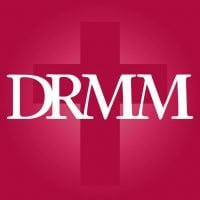
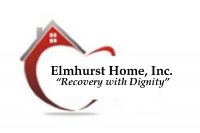

The facility name, logo and brand are the property and registered trademarks of Rainbow Center of Michigan, and are being used for identification and informational purposes only. Use of these names, logos and brands shall not imply endorsement. RehabNow.org is not affiliated with or sponsored by Rainbow Center of Michigan.


